The Pandemic: Perspectives on Asia
Edited by Vinayak Chaturvedi
Association for Asian Studies (2020)
The COVID-19 Pandemic, India and the World: Economic and Social Policy Perspectives
Edited by Rajib Bhattacharyya, Ananya Ghosh Dastidar, Soumyen Sikdar
Routledge India (2021)
Shutdown: How Covid Shook the World’s Economy
By Adam Tooze
Viking (2021)
Beyond Complacency and Acrimony: Studying Human Rights in a Post-COVID-19 World
Journal of Human Rights, Volume 21, Issue 3 (2022)
Data Justice and COVID-19: Global Perspectives
Edited by Linnet Taylor, Gargi Sharma, Aaron Martin, Shazade Jameson
Meatspace Press (2020)
Until Proven Safe: The History and Future of Quarantine
Geoff Manaugh and Nicola Twilley
Macmillan (2021)
COVID-19’s effects on the world will be studied for decades to come, but a substantive body of literature which helps us understand the pandemic’s transformation of global society and politics has already emerged. This list highlights some of these works which the PD believes best align with the blog’s editorial vision and philosophy. Specifically, the following works are notable for their ability to provide critical social and historical perspectives on the COVID-19 pandemic while maintaining a global outlook with a particular emphasis on regions outside the West.
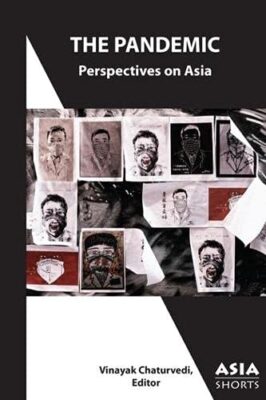
The Pandemic: Perspectives on Asia
Along these lines, The Pandemic: Perspectives on Asia, published by the Association for Asian Studies as part of its Asia Shorts series, includes a set of articles which span a diversity of academic disciplines and geographical foci. The authors include prominent academics at major US universities with expertise in fields ranging from history to media studies. As a result, the articles cover diverse topics such as examination of the Chinese government response to COVID-19 as a part of the history of global health, the rise in anti-Asian racism in the United States during the pandemic, and the acceleration of Hindutva-led anti-Muslim sentiments in India caused by the arrival of COVID-19. The cross-disciplinary, historically grounded analyses presented in this collection provide unique insights into the ways the pandemic reshaped everyday social and political lives beyond the mundane narratives centered around the experience of lockdowns.
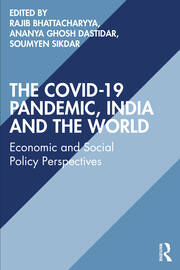
The COVID-19 Pandemic, India and the World: Economic and Social Policy Perspectives
Similarly, The COVID-19 Pandemic, India and the World: Economic and Social Policy Perspectives examines the economic and social impact of COVID-19 by centering insights from the Indian case. The essays present developments in Indian society and political economy in the context of a pandemic as well as a global historical moment. While all authored by professional economists, the articles employ a variety of analytical lenses including socio-cultural relationships, public policy, and psychology. Topics include: the economic downturn and recovery; the impact of COVID-19 and lockdown on agriculture and migrant labor; ethnic, identitarian, and gendered conflicts exacerbated by COVID-19. The edited volume is also particularly notable due to its authors and editorship being based at universities within India, lending an experiential element to a discipline with traditionally spurns such effects.
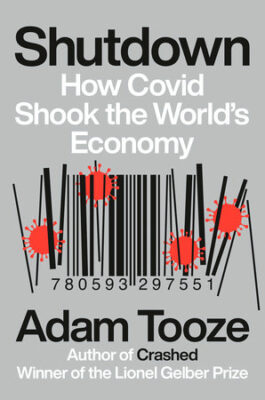
Shutdown: How Covid Shook the World’s Economy
On the other hand, historian Adam Tooze’s latest book examines the economic effects of the pandemic on a global level. In Shutdown: How Covid Shook the World’s Economy, Tooze documents the scale of the economic upheaval caused by COVID-19 and the historically unprecedented national and global political responses. Tooze relates the intimate ties between the economic dimensions of the COVID-19 crisis to the broader political and ecological crises of the Anthropocene. He calls for a re-evaluation of the broader context in which COVID-19 arrived to assimilate the pre-existing systemic risks to politics, economy, and ecology that it has exacerbated. In this way the book presents as an examination of the complex deployments of power and knowledge in response to the current crisis to prepare the critical senses for inevitable future ones.
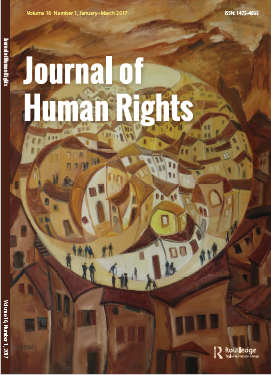
Beyond Complacency and Acrimony: Studying Human Rights in a Post-COVID-19 World
At the same time, it is essential to consider the effects of the COVID-19 pandemic outside the traditional frameworks of the political, economic, and scientific. The effects of such historic events are felt across society and culture at a global level as well. A special issue of the Journal of Human Rights, titled “Beyond Complacency and Acrimony: Studying Human Rights in a Post-COVID-19 World,” examines the drastic shifts visible in the field of human rights. These include both the obvious direct outcomes of government policies such as lockdowns as well as the indirect effects on broader human rights concerns like gendered violence, freedom of movement, protests, health care, and political repression. The special edition considers these subjects on a global level while also featuring two regional analyses based on experiences in North Africa and South Korea. The featured articles present both concrete analyses of human rights under the particular conditions of the pandemic as while illustrating future directions for scholarship looking to understand the long-term and enduring effects of COVID-19.
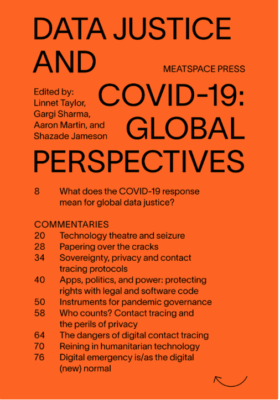
Data Justice and COVID-19: Global Perspectives
In line with questions of rights and diffuse deployments of power, the edited volume Data Justice and COVID-19: Global Perspectives examines the intersection of technology, digital data collection, and public policy during the pandemic. The first half of this volume includes critical commentaries on thematic issues related to the uses and implications of various technologies deployed during the pandemic. These concerns range from privacy and surveillance to the application of digital technology to humanitarian work to the suspension of rules and norms under a “digital emergency.” The second half of the volume uses 28 country case studies from both Global North and South to examine specific practices and trends as they evolved during the pandemic. This set of articles traverses both a variety of locations as well as themes: from techno-optimism in the Netherlands to the seemingly irreversible legislation and surveillance practices enacted in response to COVID-19 in Ghana. On a broader level, the volume provides comprehensive insight into the political implications of digital technologies and their implementation under conditions of emergency.

Until Proven Safe: The History and Future of Quarantine
Finally, Until Proven Safe: The History and Future of Quarantine provides a much-needed critical historical perspective on the very practice of emergency isolation and preventative detention as one of the oldest methods to avert biological catastrophe. The authors, two journalists, examine a variety of uses of quarantines implemented today, such as for distancing nuclear waste, maintaining food security, and even mitigating the possibility of extraterrestrial infections. They suggest that quarantines are not just exceptional events or practices but have rather profoundly shaped the world as it is e.g., through their continued presence in global institutions, trade practices, or travel regimes. The authors also discuss some of the future technologies under development to innovate quarantines as a practice for the private sector as well as in the public interest.
